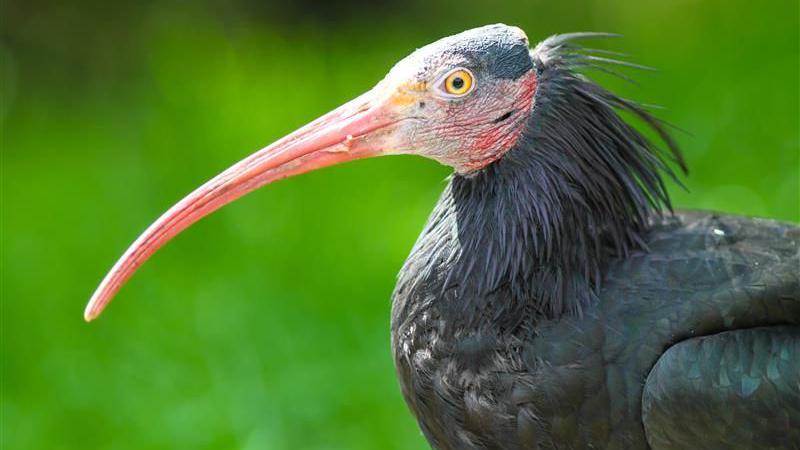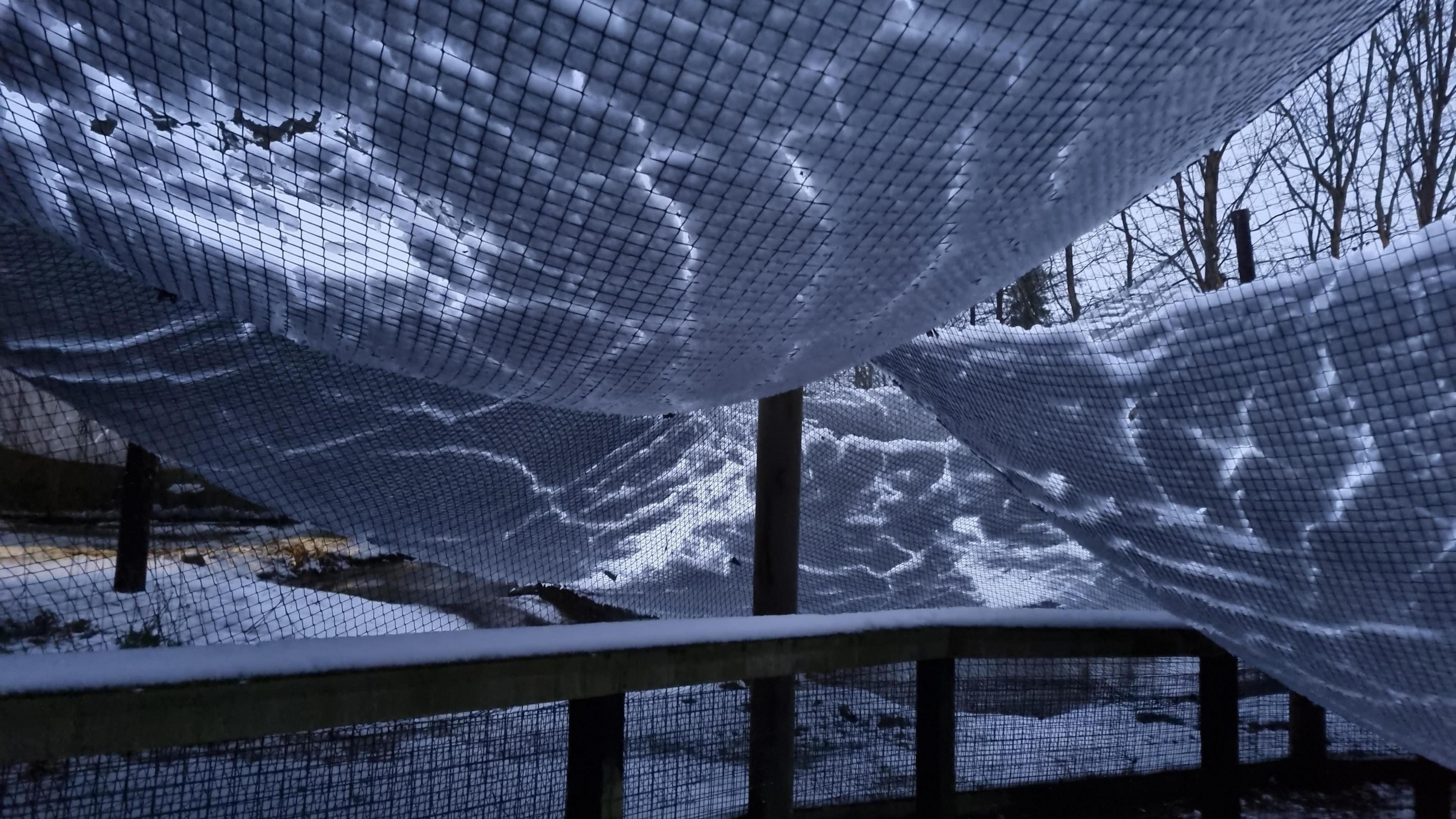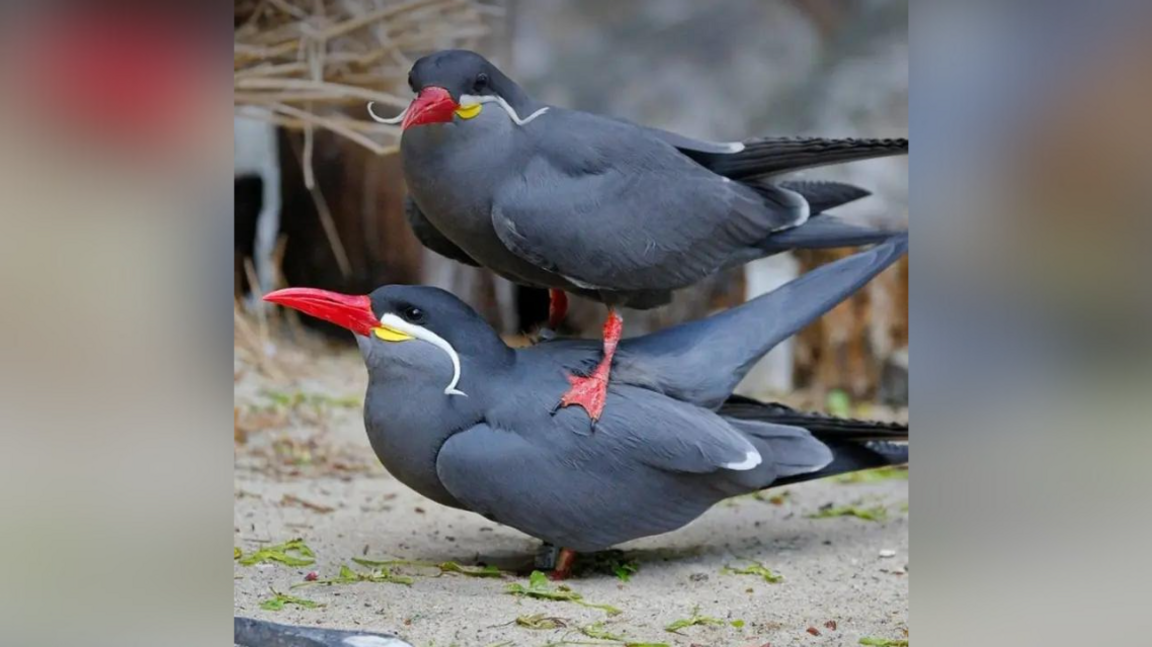Exotic birds escape zoo damaged by heavy snow

Two Waldrapp Ibis were among the birds which escaped Lotherton's aviary
- Published
Rare exotic birds escaped from a zoo at an historic country estate after aviaries were badly damaged by heavy snow.
Seven Inca Terns and two Waldrapp Ibis fled Wildlife World at Lotherton Hall near Leeds at the weekend through holes in the netting caused by the wintry weather.
Three of the terns and one ibis have been recovered but the other escapees remain at large - with sightings being reported in villages several miles away.
Shannon Gill, animal keeper at Wildlife World, said: "Having looked after these birds for nine years, I have been very worried about them."
"All the keepers have been giving up their spare time following leads of where sightings have been in the hope that we can return them to Lotherton," she added.
Birds have been a staple attraction at Lotherton Hall for more than four decades.
The Edwardian country manor, situated 11 miles east of Leeds city centre opened its bird gardens in 1980 and featured a small collection of waterfowl, poultry and ducks.
Today, the major attraction holds more than 450 individual birds from more than a 130 different species.

A "massive effort" clearing the snow from the nets took place following the deluge.
Leeds City Council said a "massive effort" clearing the snow from the nets took place following the deluge to prevent any more free-flighted birds escaping.
Staff thanked members of the public for their help in locating some of the escaped birds.
Inca Terns are best known for their distinctive white moustaches.
According to the American Bird Conservancy, the 150,000-strong population are native to the Pacific Coast from Peru to Chile.

Three Inca Terns, which are best known for their distinctive white moustaches, have been recovered.
In a post on social media, local councillor Sam Firth appealed for the public's help in finding the remaining feathered fugitives.
"We cannot do this without you," he implored.
He said two of the Inca Terns had been found by the council's Parks and Countryside Service, one located near the M1 Skelton Lake services.
It is understood efforts so far to recover more of the birds have been unsuccessful, with attempts to recapture two other terns taking place in Barwick and Wetherby.
One Waldrapp Ibis evaded rescue at Peckfield, between Garforth and Micklefield.
The ibis, also known as the Northern Bald Ibis, are migratory birds native in Central Europe until the 17th Century, according to Rewilding Europe.
The species became extinct in the wild in Europe due to huge hunting pressure and today is one of the most endangered bird species worldwide.
It is believed some of the birds may now have travelled about seven miles north of Lotherton, with other potential sightings recorded as far as Bardsey, Kippax and Tadcaster.
After being closed for nearly a week due to the snow, the attraction will reopen on Saturday in a limited capacity.
Tickets for Wildlife World will be half price throughout January, with the capybara, emus, penguins and wallabies still accessible.
Listen to highlights from West Yorkshire on BBC Sounds, catch up with the latest episode of Look North or tell us a story you think we should be covering here, external.